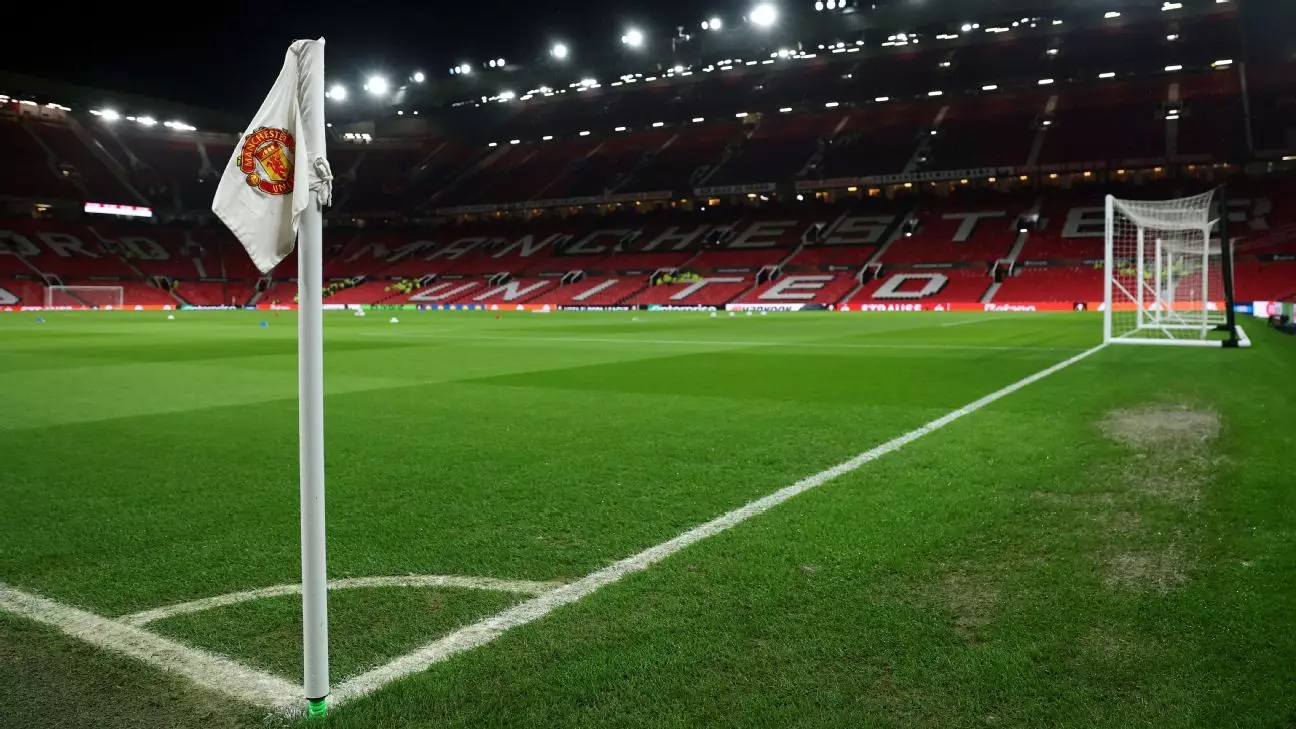Manchester United, a football giant steeped in history and a rich legacy, now faces a grim financial reality that threatens its standing both on and off the pitch. The club’s recent admission of being “in danger” of breaching the Premier League’s Profit and Sustainability Rules (PSR) has sparked widespread concern among fans and pundits alike. As the team grapples with mounting losses and rising ticket prices, the future hangs in the balance, raising pertinent questions about the club’s management and direction.
In a candid letter shared with fan groups, Manchester United disclosed that it has recorded pre-tax losses amounting to £312.9 million over the past three years. Such staggering deficits not only underscore the club’s precarious financial position but also highlight a worrying trend of unsustainable fiscal practices. Head coach Ruben Amorim, facing the pressure to overhaul a struggling squad, finds himself handcuffed by these financial limitations, with the January transfer window looming and no new signings on the horizon.
This financial strain comes as Premier League rules stipulate that clubs can lose a maximum of £105 million over a three-year cycle. Breaches of these regulations could lead to dire consequences, including substantial fines and, more critically, points deductions that could further jeopardize United’s performance in the league. The club’s declaration of its precarious financial status is not merely a cry for help but a clear indication that significant changes must be made immediately to avoid severe penalties.
Under the stewardship of new co-owner Sir Jim Ratcliffe, drastic cost-cutting measures have been instituted. Since he took over in February, Ratcliffe has overseen the redundancy of approximately 250 club employees, a move that reflects the urgency of addressing the financial crisis. However, this approach has come with backlash, as fans voice their discontent over the club’s strategy amid rising ticket prices.
The club’s hike in the lowest-priced tickets from £40 to £66 partway through the season has sparked outrage among supporters, who feel alienated by the seemingly profit-driven decisions being made by the hierarchy. While the club claims to be reviewing its ticket pricing strategy in recognition of fan sentiments, the fundamental issue remains: financial decisions seem to be prioritized over the emotional connection that fans have with the club.
Amidst the dire financial circumstances, there are increasing rumors that Manchester United could be open to selling senior players during the January transfer window. The potential departure of promising young talents like Alejandro Garnacho indicates that the club might be willing to make difficult choices in its quest for financial viability. While they would prefer to retain such players, the harsh reality of their financial obligations may force the club into negotiations with other clubs, potentially undermining the squad’s integrity.
Such a strategy raises concerns about the long-term vision for the club. If Manchester United is forced to prioritize short-term financial recovery over building a competitive team, it risks further alienating its passionate fanbase and commodifying the club’s once-cherished ethos. The balance between securing financial health and maintaining a capable squad is delicate, and the repercussions of mismanaging this balance could resonate for years.
The financial turmoil dovetails with the club’s dismal on-field performance this season, epitomized by coach Ruben Amorim’s stark assessment after a defeat that left the team languishing in 13th place. His remarks, labeling the current situation as “the worst, maybe, in the history of Manchester United,” echo the sentiments of disillusioned supporters who have watched their once-mighty club slip from grace.
As the squad treads water close to the relegation zone, the urgency for revitalization is palpable. The subsequent dismissal of Erik ten Hag only adds another layer of instability, demonstrating a lack of clarity in direction and vision. The turbulence will undoubtedly impact the morale of both players and fans, exacerbating already fraught relations.
Manchester United finds itself at a critical juncture where financial sustainability, managerial efficacy, and competitive performance intersect. The obstinate refusal to adequately address these issues could lead to disastrous repercussions. With fans growing increasingly frustrated by ticket prices and lack of transparency from the club, the need for decisive action has never been more pressing. Unless United can navigate these treacherous waters effectively, the once-great club risks losing its identity and heritage in the quest for financial stability.

